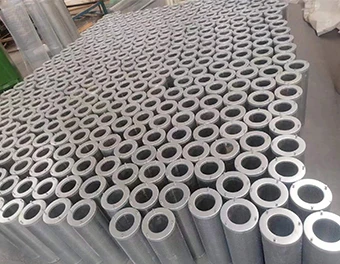 Tel:
+8615930870079
Tel:
+8615930870079
Dec . 11, 2024 10:32 Back to list
Gas Turbine Inlet Filtration Systems for Enhanced Performance and Efficiency
Gas Turbine Inlet Filters Ensuring Optimal Performance and Efficiency
Gas turbines are critical components in power generation, aviation, and numerous industrial applications. They convert fuel into mechanical energy through a process of combustion, generating significant thrust or power. However, their performance and lifespan can be severely compromised by the ingestion of contaminants from the air. This is where gas turbine inlet filters come into play. These filters are essential for maintaining the efficiency and reliability of gas turbines, ensuring they operate at optimal conditions.
The Importance of Inlet Filtration
The air entering a gas turbine contains various contaminants such as dust, dirt, pollen, insects, and water droplets. These particles can lead to a range of issues, including erosion of the turbine blades, reduced fuel efficiency, and increased wear on critical components. Contaminated air can also adversely affect combustion efficiency, leading to incomplete combustion and increased emissions. Therefore, effective air filtration is vital to protect these expensive and complex machines.
Inlet filters are designed to remove harmful particles from the incoming air stream before it reaches the turbine. They play a pivotal role in maintaining the integrity of the combustion process, which is essential for achieving maximum efficiency and minimizing emissions. The implementation of high-quality filtration systems not only prolongs the lifespan of gas turbines but also enhances overall operational efficiency.
Types of Inlet Filters
Gas turbine inlet filters come in various types, tailored to specific applications and environmental conditions. The most common types include
1. Panel Filters These are commonly used in environments where the air quality is relatively good. Panel filters typically have a lower pressure drop, allowing for higher airflow while capturing larger particles.
2. Bag Filters Designed for more challenging conditions, bag filters feature a larger surface area and can capture finer particles than panel filters. They are ideal for industrial applications where dust levels are significant.
gas turbine inlet filter

3. Pleated Filters These filters offer a higher dust-holding capacity than standard panel filters due to their increased surface area. They are an excellent choice for environments with varying levels of particulate matter.
4. Electrostatic Precipitators Utilizing an electrical charge to capture particles, electrostatic precipitators can handle very fine particles and are often used in high-performance applications, despite their higher initial costs and maintenance requirements.
5. Pre-Filters These filters serve as a first line of defense, capturing larger particles and prolonging the life of primary filters. They are particularly useful in environments with high particulate loads.
Challenges in Gas Turbine Inlet Filtration
While gas turbine inlet filters are vital for optimal turbine performance, they also face several challenges. One of the most pressing issues is maintaining the balance between filtration efficiency and airflow. High-efficiency filters can create a significant pressure drop, which may lead to a decrease in overall performance. This necessitates careful selection and design to ensure the filters provide adequate protection without compromising the turbine’s operational requirements.
Another challenge is the maintenance of the filters themselves. Regular inspection and replacement are crucial to ensure the filters are functioning correctly. Clogged or damaged filters can impede airflow, causing the turbine to work harder, which can increase fuel consumption and emissions.
Conclusion
In conclusion, gas turbine inlet filters are an essential component in ensuring the efficiency and longevity of gas turbines. By effectively eliminating harmful contaminants from the incoming air, these filters help maintain optimal operational conditions, improve combustion efficiency, and reduce harmful emissions. As the demand for cleaner energy and efficient technologies continues to grow, the importance of advanced inlet filtration systems will only increase. Organizations invested in gas turbine technology must prioritize the selection and maintenance of quality filters to safeguard their assets and enhance operational performance. In doing so, they contribute to a more sustainable and efficient energy landscape, ultimately leading to a cleaner and healthier environment.
-
Types and Applications of Air Filtration CartridgesNewsJul.28,2025
-
The Role of Gas Turbine FiltersNewsJul.28,2025
-
Mastering Air Filter Cartridge UseNewsJul.28,2025
-
Advanced Turbine Filters for Modern Gas TurbinesNewsJul.28,2025
-
Cellulose Air Filter Cartridge Advantages in Dust FiltrationNewsJul.28,2025
-
Cellulose Filters for Air Particle ReductionNewsJul.28,2025

 Email:
Email:





